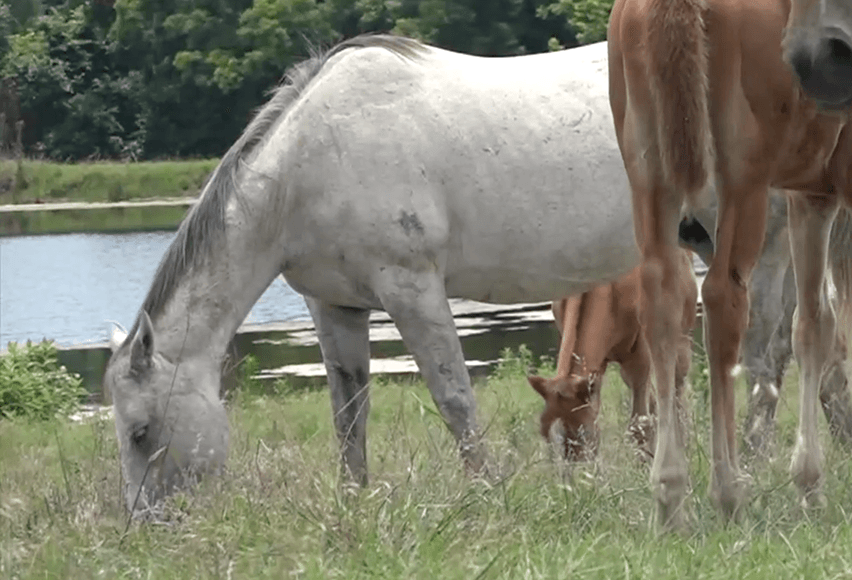Proper nutrition is essential to keeping your horse healthy, energetic, and performing at its best. Horses have specific dietary needs, and their diet must be balanced to support their overall well-being. Here are some key nutrition tips and advice to help you maintain a healthy horse:
1. Prioritize Fiber
The cornerstone of a horse’s diet should be fiber, primarily from hay or pasture. Fiber supports proper digestion, promotes gut health, and keeps your horse’s teeth in good condition. High-quality grass hay (like timothy, orchard, or meadow hay) is ideal, as it’s high in fiber and helps prevent digestive issues like colic and ulcers.
- Tip: Ensure your horse has access to hay throughout the day, and try to offer fresh pasture when possible.
2. Provide Adequate Water
Water is the most important nutrient for your horse. It aids in digestion, maintains hydration, and supports vital bodily functions. Horses can drink anywhere from 5 to 10 gallons of water per day, depending on activity levels, temperature, and their diet.
- Tip: Always ensure fresh, clean water is available, especially after exercise or during hot weather. Avoid allowing water to become too cold, as some horses may be reluctant to drink it.
3. Balance the Grain (Concentrates) Intake
Grain (or concentrates like oats and pellets) should be fed based on your horse’s level of activity, age, and health. While many horses can thrive on hay alone, grain may be necessary for working horses, pregnant mares, or those that need to gain weight.
- Tip: Feed grain in small, frequent meals (2-3 times per day) to mimic natural grazing patterns. Avoid feeding large amounts of grain at once to prevent digestive upset.
4. Limit Sugary Treats
Horses love treats like apples, carrots, and commercial snacks, but excessive sugar or processed treats can contribute to obesity, insulin resistance, or colic. Always feed treats in moderation.
- Tip: Opt for healthy, low-sugar treats like a small piece of carrot or a handful of oats. Avoid sugary processed horse treats that contain artificial ingredients or excessive sugar.
5. Incorporate Quality Supplements When Necessary
Some horses may require supplements, especially if they have specific nutritional needs. Joint supplements, digestive aids, and vitamin/mineral supplements can be beneficial for older horses, horses in heavy training, or those with health conditions.
- Tip: Consult with a veterinarian or equine nutritionist before adding supplements to your horse’s diet. Not all horses need them, and unnecessary supplementation can lead to imbalances.
6. Monitor Body Condition and Weight
Regularly assess your horse’s body condition. A healthy horse should have a body condition score between 5 and 6 (on a scale of 1-9). If your horse is too thin or overweight, adjust their diet and feeding schedule accordingly.
- Tip: Track your horse’s weight regularly. If you’re concerned about their weight, consult a vet or nutritionist for a tailored feeding plan.
7. Avoid Sudden Diet Changes
Horses have sensitive digestive systems, and sudden changes in their diet can lead to colic, digestive upset, or behavioral issues. If you need to change their hay or grain, make gradual adjustments over 7-10 days.
- Tip: Gradually introduce any new feed or hay by mixing it with their current food and slowly increasing the new feed’s amount over time.
8. Ensure Proper Forage Quality
Not all forage is created equal. It’s important to feed your horse high-quality forage that is free from mold, dust, or contaminants. Moldy or spoiled hay can lead to respiratory issues, allergies, and digestive problems.
- Tip: Inspect hay carefully for any signs of mold or rot. Store hay in a dry, well-ventilated area to prevent spoilage.
9. Feed for Activity Levels
Your horse’s diet should be adjusted based on its activity level. Performance horses or those in heavy training may need more calories and protein to support muscle development, while retired or less active horses may need a reduced calorie intake.
- Tip: During periods of intense training or performance, feed your horse an appropriate amount of concentrated grain or performance feed, along with additional forage for fiber.
10. Provide Salt and Electrolytes
Horses need salt and electrolytes to maintain proper hydration, especially during exercise or hot weather. Salt helps regulate fluid balance and ensures muscle function.
Tip: Offer your horse a salt block or provide a small amount of loose salt in their feed. If your horse is sweating heavily due to exercise or heat, consider providing an electrolyte supplement to replace lost minerals.
Proper nutrition is vital for your horse’s health, performance, and longevity. By providing a balanced diet rich in fiber, ensuring access to fresh water, and adjusting their feed based on activity levels, you can help your horse maintain optimal health. Regularly assess your horse’s condition and consult with a veterinarian or nutritionist to ensure they are getting the right nutrients for their specific needs. With proper care and attention to their diet, your horse will thrive and stay healthy for years to come.




